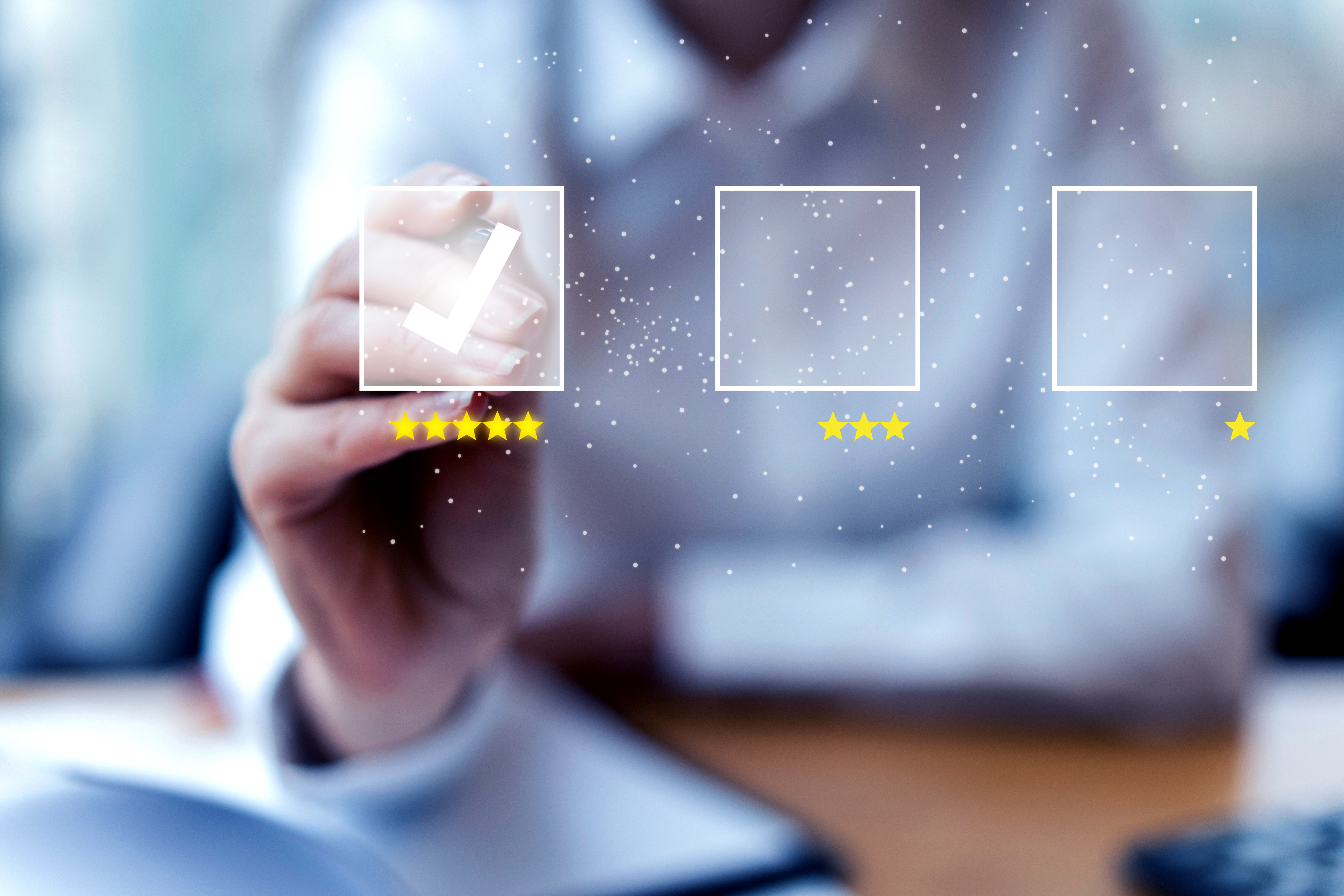The SEO game in 2025 isn’t just about ranking for keywords anymore. It’s about understanding intent, predicting user behavior, and creating content that feels like it was written for one specific person at the exact moment they need it. The thing is, you can’t do that efficiently at scale without AI. Search engines have changed, and the businesses using AI for SEO are pulling ahead while others are still playing catch-up. If you’ve been wondering what’s working right now, this is the playbook.
The Shift in SEO: Why 2025 Is Different
Not long ago, SEO was about stuffing keywords into pages and hoping Google liked the density. Those days are gone. In 2025, search engines like Google and Bing are operating on AI-first algorithms that prioritize context and user satisfaction over everything else. That means it’s no longer about simply being relevant. It’s about being the most contextually relevant option.
From Keyword Stuffing to Contextual Relevance
AI now understands the difference between “running shoes for trail” and “best trail running sneakers for beginners in Colorado.” Instead of looking at them as two separate phrases, Google connects the dots and knows the searcher’s likely goal. Your SEO strategy must work the same way. AI tools help map related terms, intent signals, and semantic relationships so your content hits every angle in one shot.
Google’s AI-First Algorithms
With updates like Search Generative Experience (SGE) and MUM continuing to evolve, search results are no longer just a list of links. AI is summarizing answers directly in SERPs, pulling from the most authoritative and relevant sources. That means if your content isn’t built to feed AI-friendly snippets, you risk being invisible, even if you’re “ranking” in the old sense.
How AI Is Changing Search Intent Targeting
AI isn’t just processing data. It’s anticipating what people are going to search for next. That’s a game-changer for content strategy.
Predictive User Behavior Analysis
With the right AI-driven tools, you can now analyze thousands of data points to figure out not just what your audience is searching for, but when and why they’re searching for it. This lets you publish content before the trend spikes, positioning you as the go-to authority from the start.
Real-Time Content Optimization
Old-school SEO meant publishing and waiting to see if it ranked. Now AI can scan your content in real time and adjust for keyword gaps, structure issues, or competitor advantages on the fly. It’s like having a living, breathing SEO assistant that never sleeps.
AI Tools That Are Dominating SEO Right Now
There’s no shortage of AI-powered tools, but in 2025, the leaders are the ones that blend automation with human-like context.
Content Generators with Human-Like Context
Forget the generic AI copy tools of a few years ago. The new breed creates content that’s hyper-specific, deeply researched, and tailored to local nuances. For example, if you’re a Dallas-based service business, AI can include local landmarks, references, and cultural cues to boost relevance.
Automated On-Page SEO Enhancements
AI platforms can now handle meta tags, image alt text, schema markup, and internal linking automatically, without the clumsy errors we used to see. That means more time spent creating value-driven content instead of fussing over technical tweaks.
Building an AI-Driven SEO Strategy
Having tools is great, but strategy is what turns them into results.
Step 1: Competitor Insights at Scale
Instead of manually checking what your competitors are ranking for, AI platforms scan entire markets, find weaknesses, and even suggest keyword opportunities they’re missing. This lets you target openings where you can win quickly.
Step 2: AI-Powered Keyword Clustering
Rather than focusing on single keywords, AI clusters related terms by search intent. This allows you to create pillar content that ranks for dozens, sometimes hundreds, of variations at once.
Step 3: Smart Content Planning
AI can map out a content calendar that aligns with seasonal trends, local events, and product launches. It ensures every piece you publish has a purpose and is timed for maximum impact.
AI SEO in Action
Let’s get practical. One of Timpson Marketing’s clients, a mid-sized HVAC company in Florida, came to us struggling with inconsistent leads. By using AI-driven SEO, we identified high-intent seasonal searches like “emergency AC repair near Tampa” weeks before peak demand. We built optimized pages and local ads around them. Within two months, organic traffic was up 187% and lead conversions had doubled.
AI didn’t just boost rankings. It predicted market needs before they happened. That’s the real edge. It’s not about chasing traffic; it’s about owning the conversations that matter most to your audience.
What to Avoid: AI SEO Mistakes That Can Hurt Rankings
AI can be a powerful partner, but misuse can tank your efforts.
Over-Automation
If you lean too heavily on automation without human review, you risk publishing content that feels robotic or off-brand. Search engines still value authenticity and accuracy.
Ignoring Human Editorial Oversight
AI can draft incredible first versions, but humans catch nuance, emotion, and subtle brand tone. The winning formula in 2025 is AI speed plus human precision.
“Working with Timpson Marketing completely changed our digital presence. We went from guessing about SEO to having a clear AI-powered roadmap that brought us more calls than we could handle. It’s not just the rankings. It’s the steady flow of real customers that made all the difference.” – Local Service Business Owner, Austin, TX
Ready to stop guessing and start growing?
AI isn’t replacing SEO. It’s reshaping it. The businesses winning in 2025 are those that combine AI’s predictive power with a human touch. If you want to be part of that winning group, now’s the time to adapt. Because in this landscape, staying the same is the fastest way to disappear.Timpson Marketing’s AI-driven SEO strategies aren’t just about clicks. They’re about building a lead machine that works around the clock. Whether you’re a local business or a national brand, we’ll craft a plan that gets you found by the right people at the right time. Don’t wait for your competitors to figure it out first. Book your free AI SEO strategy session today and see what’s possible.
Frequently Asked Questions
1. What is AI-driven SEO?
AI-driven SEO uses artificial intelligence to analyze data, predict search trends, and optimize content for better rankings and user engagement. It’s faster and more precise than traditional SEO methods. Businesses use it to stay ahead of algorithm changes.
2. How does AI improve search rankings?
AI improves rankings by identifying relevant keywords, optimizing content in real time, and aligning with search intent. It ensures your content is structured for both users and search engines. This leads to better visibility and click-through rates.
3. Is AI SEO different from traditional SEO?
Yes, AI SEO focuses on automation, predictive analytics, and semantic search optimization. Traditional SEO relies more on manual research and updates. AI speeds up processes and adapts strategies instantly.
4. Can AI create SEO-friendly content?
AI can generate SEO-friendly content by analyzing keywords, structure, and readability. However, human editing ensures brand voice and emotional connection. The best results come from combining both.
5. What tools are used for AI SEO in 2025?
Popular tools include Surfer AI, Clearscope, MarketMuse, and Jasper for content optimization. Platforms like Semrush and Ahrefs now integrate AI features for deeper insights. Each serves a different part of the SEO process.
6. Does AI SEO work for small businesses?
Yes, AI SEO can be tailored for small businesses with local targeting. It’s cost-effective because it automates time-consuming tasks. Local keyword insights help attract nearby customers.
7. How much does AI-driven SEO cost?
Costs vary depending on tools, agency expertise, and campaign size. Monthly investments can range from $500 for small campaigns to $10,000 for enterprise strategies. The ROI often justifies the spend.
8. Will AI replace SEO experts?
No, AI won’t replace SEO experts but will change their role. Experts focus on strategy, brand voice, and creative direction while AI handles data-heavy tasks. It’s a partnership.
9. How quickly can AI SEO show results?
AI SEO can show noticeable results in as little as 4–8 weeks. Timing depends on competition, niche, and website health. Long-term consistency still matters.
10. Does Google approve of AI SEO?
Google allows AI-assisted content as long as it’s high-quality, relevant, and helpful. Spammy or low-value AI content can still be penalized. Quality guidelines still apply.
11. Can AI help with local SEO?
Yes, AI is highly effective for local SEO. It finds geo-specific keywords, optimizes Google Business Profiles, and monitors local competitor trends. This helps businesses dominate local searches.
12. What are common mistakes in AI SEO?
Over-reliance on automation, skipping human review, and ignoring brand tone are common mistakes. Poor quality control can harm trust and rankings. Balance is key.
13. How does AI analyze search intent?
AI studies user behavior, query patterns, and contextual clues to determine intent. This allows content to target exact needs. It improves relevance and engagement.
14. Can AI optimize old content?
Yes, AI can audit and refresh old content with updated keywords, structure, and metadata. This can revive rankings and increase traffic. Many businesses see quick wins here.
15. What industries benefit most from AI SEO?
E-commerce, local services, healthcare, and SaaS companies see strong gains. Any industry with competition for online visibility can benefit. AI works across sectors.
16. Does AI SEO help with voice search?
Yes, AI optimizes content for conversational queries and long-tail keywords. This improves results for voice search devices like Alexa and Google Assistant. It’s becoming essential.
17. How is AI used in link building?
AI identifies quality backlink opportunities and outreach prospects. It also analyzes competitor link profiles for gaps. This speeds up link acquisition strategies.
18. What is keyword clustering in AI SEO?
Keyword clustering groups related search terms based on intent. AI automates this process, enabling broader ranking potential. It supports more comprehensive content strategies.
19. Can AI track SEO ROI?
Yes, AI tools can connect ranking data, traffic, and conversions to show clear ROI. This helps justify SEO investment. Businesses can see what’s working in real time.
20. Is AI SEO future-proof?
AI SEO is adaptable, making it more future-proof than static strategies. As algorithms evolve, AI adjusts quickly. It’s designed for long-term competitiveness.




Leave A Comment